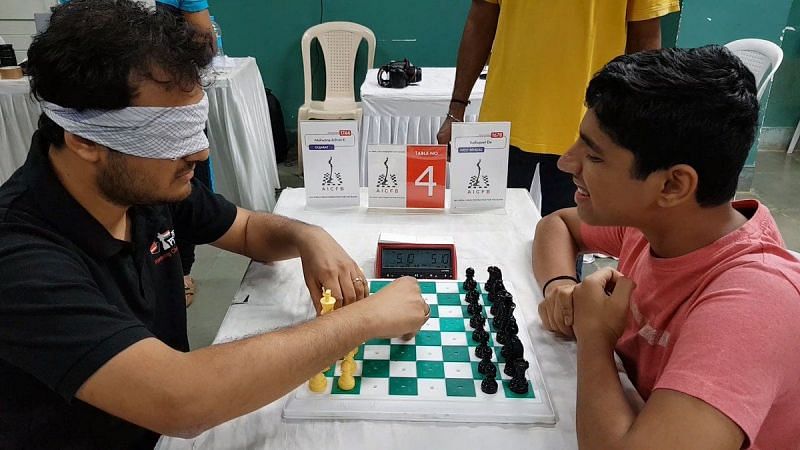
"I want to make sure that India is able to make its mark in a big way" says Indian Blind Chess team coach Sagar Shah
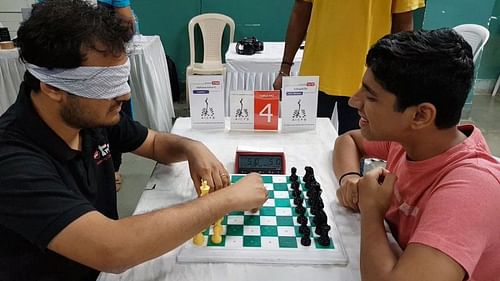
IM Sagar Shah is a multi-tasker and an achiever. He is a qualified chartered accountant, but at the same time, he is the co-founder of the chess start-up Chessbase India, the Indian version of Chessbase.
He is also a powerful writer, holder of GM norms, founder of a non-profit foundation under his startup called the Chessbase India Foundation, and recently was the coach of the Indian blind chess team for the Olympiad and World Junior tournaments.
He has a serious passion for improving his own game, but, at the same time, he wants to make a difference in the visibility of the sport in the country. In this interview, we catch up with the man himself and talk about his various areas of interest.
How did you come up with the idea of promoting chess for the disabled?
When Amruta and I set off for our 365-day journey we wanted to be the eyes and ears for the entire chess community of India through our pictures, writings and videos on ChessBase India.
Of course, the main aim was to ignite the passion in the public about the game of chess, by bringing forth the big stars like Vishy Anand, Harikrishna, Vidit Gujrathi, Humpy, Harika and others and reporting about their games and victories.
But at the same time we felt that there were sections of the Indian chess community who were never really properly covered. The visually challenged or physically disabled chess are fields where the amount of effort involved from the participants is huge.
Not just in terms of their chess practice, but just battling out day to day problems in life. I think they are real champions and we are glad that we go to spend a substantial amount of time in 2018 with some of the best blind players of India.
However, none of this was actually planned in detail. We wanted to cover the National A for the visually challenged happening in Mumbai in February 2018.
A couple of days before the event, I received a phone call from Charudatta Jadhav, the president of AICFB, that the tournaments had no real sponsors and the hosting of the event was itself in jeopardy.
I published an article on ChessBase India appealing to the chess community to come together for this noble cause and contribute whatever little they could. The response was simply amazing.
Within a week we had 120 contributors and we had raised nearly Rs.5,75,053. The tournament took place successfully.
In fact, the first prize was increased from Rs.20,000 to Rs.50,000 and we had been associated with became very closely associated with the blind chess fraternity of India.
What do you think about the visually challenged chess scenario in India? How has it changed over the course of time?
The Blind chess of India exists because of the work of All India Chess Federation for the Blind (AICFB). One man and his vision to bring about a change.
That's Charudatta Jadhav. Charudatta Jadhav started AICFB and tried his best to spread chess among the blind community of India. For him, chess was an empowering tool. It was a sport in which he could compete equally with the sighted people.
Charudatta is the first rated blind player of India and has also beaten sighted IMs. After his success in chess, he went on to become a Ph.D and currently heads a team of nearly 2000 people in TCS. Jadhav attributes his success to the sport of chess.
In order that other people from the blind chess community also experience and reap the benefits of chess, as he did, Charudatta began working hard with a few friends to promote the game of chess among the visually challenged.
Today I think thanks to the groundwork being laid in a very systematic manner, we have several active state chess associations and many visually challenged youngsters taking up the game of chess.
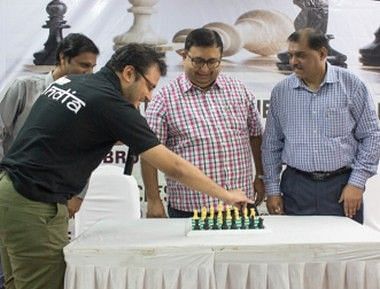
How has your experience been as the coach of the Indian blind chess team?
It has been truly eye-opening for me. I have worked with Kishan Gangolli, Ashwin Makwana, Aryan Joshi, Soundarya and Prachurya Pradhan and Subhendu Patra.
When I was appointed as the coach of the team for the World Team Championship and World Juniors, I knew that I had to begin my work several months in advance.
We tried to find the best way in which we could communicate with each other. Skype was the best. Most of the times we would decide a time in advance and everyone would join in a group call.
I would dictate the position out to them and they would set it up on their boards. I think over the Skype sessions I could basically understand the weaknesses and strengths of each of these players.
When we went to World Teams in Bulgaria and then the World Juniors in Poland, I already knew each of them very well and hence could recommend the openings, or the setups that would best suit them.
I can say that I know the life story of each and every one of these six individuals very well. I am attached to each one of them in a big way and the feeling is mutual. More than a coach-student relationship, I was like a friend whom they respected and tried their best to listen and learn from.
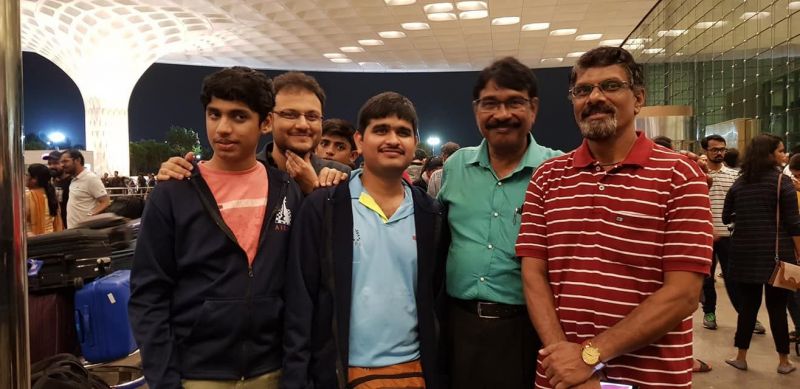
What do you think about the talent that these players have? What are the areas where they need to work on? How can they improve?
After working with them for nearly four to five months, I can say that each one of them has different qualities.
Kishan has the best chess understanding among all of them. I personally think he is strong enough to be rated somewhere around 2200-2250. He has to keep working hard. His big break will come soon.
Soundarya has a logical mind and can calculate complications very well. He is not afraid to dive into complicated lines, which is usually a problem for the blind players. But at the same time, he is erratic. He could very well play an amazing game one day, and on the next blunder very badly.
Aryan, I feel is the player who has the most promise. That's because he is young - just 17 years old and he is completely focused on chess. I tried to see the number of accurate moves he would make during a game and that ratio was very high. His main problem was missing opponent's ideas and we have been working quite a bit on that.
Ashwin Makvana, we used to call him Mikhail Tal! He could surprise us by finding moves which would even take a seasoned IM like me time to find. But at the same time, Ashwin likes to launch baseless attacks and is not always confident about his abilities.
Subhendu Patra has the thing which can really help him make big leaps in chess - he loves the game and badly wants to improve.
So he is ready to work hard. If he gets the right direction, it is quite possible that he can improve faster. As of now, he has to work hard to reach the same level as others.
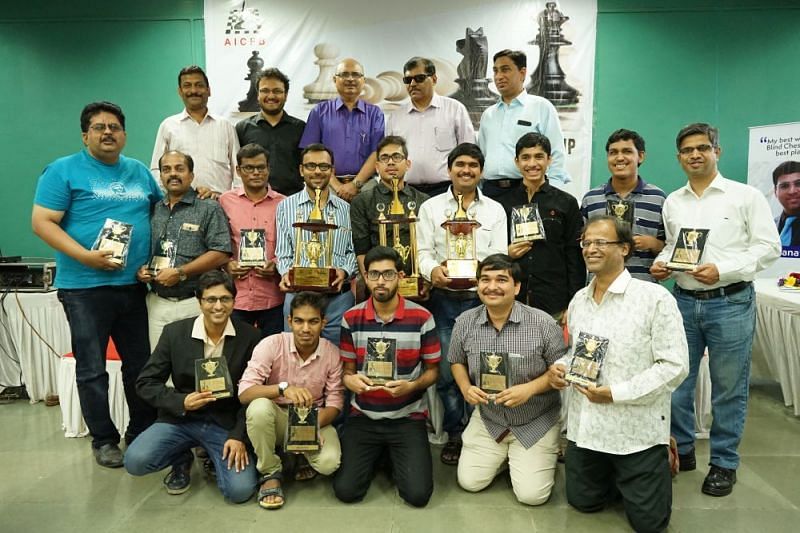
What were the challenges that you faced as their coach?
My biggest task revolved around breaking their psychological weaknesses. They were all content with a medal or qualification or something tangible. I asked them to shift their focus from such things to playing good chess.
Just making one good move after another. It didn't really matter whom you were playing or what the opponent's rating was, the most important thing was to just focus on making the best moves. I wanted them to stop taking short draws.
I wanted them to stop thinking about rating points and qualifying for International events. We were successful in that respect I think because the team played with great fire against all opponents in the World Team Championships.
Even at the World Junior Championship Aryan and Soundarya never thought about taking draws even when they faced each other or higher rated opponents.
So making them psychologically stronger was one of my biggest tasks. Once that was in place, chess was easy to teach!
Another big problem was that the players would participate in very few tournaments. Before the World Team Championship, Dibyendu Barua and the Kolkata Open came forward in May 2018 and gave free entries and accommodation as well as food to the entire team so that they could play against strong opposition in our country.
This helped a lot. The organizers at Odisha Open were also helpful and this made a huge difference in their preparation.
How do you balance writing and managing Chessbase India along with training the Indian visually challenged chess team?
It pays to marry a chess player! Amruta helped me tremendously not just with the training of the blind players but also with managing ChessBase India when I was busy working with blind players.
I must also add that ChessBase India now has a powerful team of self-motivated individuals, so even if I am working with the blind players the website and our social media keeps moving with content.
When I was in Bulgaria and Poland with the team, I made it a point to write regular reports about the performance of the Indian team.
Along with being a coach of the team, I was also the person who was telling their story to the world. I wanted the world to know their challenges, their hard work, their struggles.
With innumerable articles, videos and interviews, I think I was able to increase the awareness of blind chess in our country.
7. How can other players get involved in helping the team?
There are multiple ways. You can create training content, you can help the players by being their roommates in different tournaments and escorting them, you can financially support them.
The problem is to create a structure that is sustainable and that helps to take the blind chess to the next level. In this respect, Charudatta Jadhav has been working hard since the past few years to develop a library for chess players where books can be stored in a format which is accessible for the blind players.
I am very keen that a corporate sponsor should come forward and become the partner with All India Chess Federation for the Blind.
Only if a corporate can bring in sustained finances, can blind chess progress in our country. All the plans finally boil down to whether they can be afforded or not.
Today I did the entire coaching and training, without expecting anything in return as monetary compensation. But this can be done once or twice. If something needs to be done regularly, it has to be done in a professional way.
That's the reason why I would like to give a shout out to the various corporates out there to consider spending their CSR fund for the promotion of blind chess. It is proven beyond doubt that chess can help the visually challenged gain the much-needed confidence. It gives them a feeling of equality.
Why is it so important for the visually challenged to play chess, and what opportunities does it provide a blind person?
Chess is the only sport where the rules of the game do not have to be changed for the sighted and the visually challenged.
That's what makes blind chess so special. And that's the reason why when a blind chess player beats a sighted chess player in chess, he starts to get the feeling that he can beat them in any other sphere in normal life as well.
9. Where do you see Indian blind chess in the next few years?
If a corporate sponsor is found and the financial part is taken care off, I am sure we can create titled players in the country. We have talents like Darpan Inani, Kishan Gangolli, Soundarya Pradhan, Aryan Joshi, Marimuthu and many others, all young and talented with a passion to work hard.
I am sure each one of them could become an IM or a GM if they are given proper guidance along with financial support.
What plans do you personally have for the future of this team? Will you be continuing with your superb efforts so far?
This year the National A begins in the first week of January. Top four players will go to the World Championship in Italy.
I am not really sure who would accompany them as a coach. I would be happy to do that. I want to make sure that India is able to make its mark in a big way against the world superpowers in blind chess like Poland, Russia and Ukraine.
At the same time, I really enjoy being in the company of all these players. They make me realize how lucky I am and how nothing in life should be taken for granted!
There is always a struggle for funds. I hope this year AICFB is able to find the funds to send the players to the World Championship. One thing is sure, coach or not a coach, I will always be trying to promote blind chess in every possible way that I can.